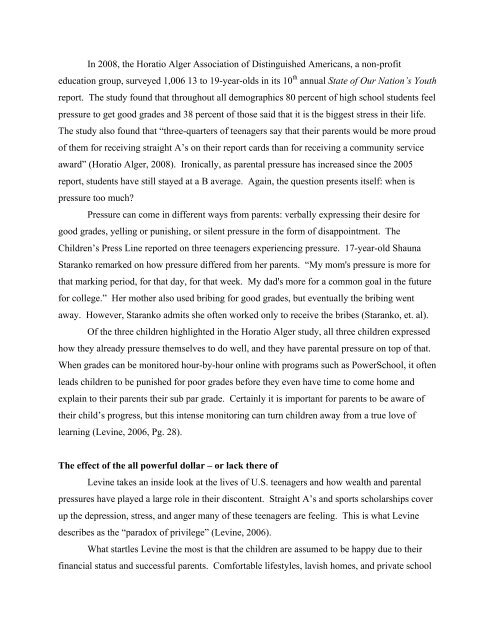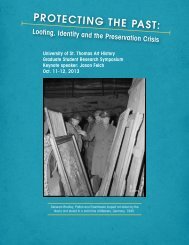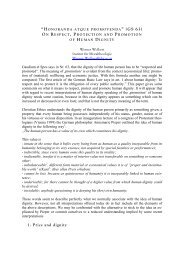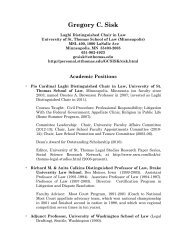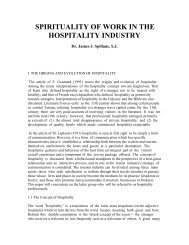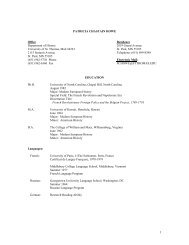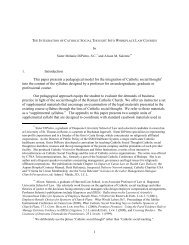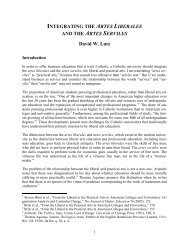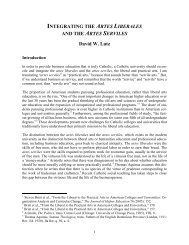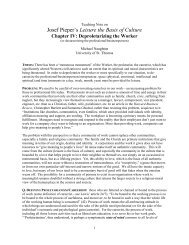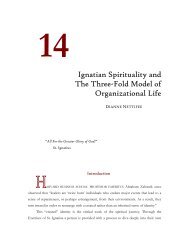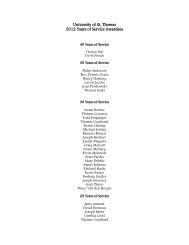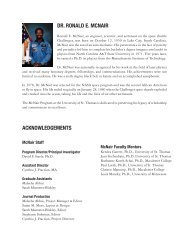A teenager's never-ending pressure to be the apple of their parent's ...
A teenager's never-ending pressure to be the apple of their parent's ...
A teenager's never-ending pressure to be the apple of their parent's ...
You also want an ePaper? Increase the reach of your titles
YUMPU automatically turns print PDFs into web optimized ePapers that Google loves.
In 2008, <strong>the</strong> Horatio Alger Association <strong>of</strong> Distinguished Americans, a non-pr<strong>of</strong>it<br />
education group, surveyed 1,006 13 <strong>to</strong> 19-year-olds in its 10 th annual State <strong>of</strong> Our Nation’s Youth<br />
report. The study found that throughout all demographics 80 percent <strong>of</strong> high school students feel<br />
<strong>pressure</strong> <strong>to</strong> get good grades and 38 percent <strong>of</strong> those said that it is <strong>the</strong> biggest stress in <strong>the</strong>ir life.<br />
The study also found that “three-quarters <strong>of</strong> teenagers say that <strong>the</strong>ir parents would <strong>be</strong> more proud<br />
<strong>of</strong> <strong>the</strong>m for receiving straight A’s on <strong>the</strong>ir report cards than for receiving a community service<br />
award” (Horatio Alger, 2008). Ironically, as parental <strong>pressure</strong> has increased since <strong>the</strong> 2005<br />
report, students have still stayed at a B average. Again, <strong>the</strong> question presents itself: when is<br />
<strong>pressure</strong> <strong>to</strong>o much?<br />
Pressure can come in different ways from parents: verbally expressing <strong>the</strong>ir desire for<br />
good grades, yelling or punishing, or silent <strong>pressure</strong> in <strong>the</strong> form <strong>of</strong> disappointment. The<br />
Children’s Press Line reported on three teenagers experiencing <strong>pressure</strong>. 17-year-old Shauna<br />
Staranko remarked on how <strong>pressure</strong> differed from her parents. “My mom's <strong>pressure</strong> is more for<br />
that marking period, for that day, for that week. My dad's more for a common goal in <strong>the</strong> future<br />
for college.” Her mo<strong>the</strong>r also used bribing for good grades, but eventually <strong>the</strong> bribing went<br />
away. However, Staranko admits she <strong>of</strong>ten worked only <strong>to</strong> receive <strong>the</strong> bri<strong>be</strong>s (Staranko, et. al).<br />
Of <strong>the</strong> three children highlighted in <strong>the</strong> Horatio Alger study, all three children expressed<br />
how <strong>the</strong>y already <strong>pressure</strong> <strong>the</strong>mselves <strong>to</strong> do well, and <strong>the</strong>y have parental <strong>pressure</strong> on <strong>to</strong>p <strong>of</strong> that.<br />
When grades can <strong>be</strong> moni<strong>to</strong>red hour-by-hour online with programs such as PowerSchool, it <strong>of</strong>ten<br />
leads children <strong>to</strong> <strong>be</strong> punished for poor grades <strong>be</strong>fore <strong>the</strong>y even have time <strong>to</strong> come home and<br />
explain <strong>to</strong> <strong>the</strong>ir parents <strong>the</strong>ir sub par grade. Certainly it is important for parents <strong>to</strong> <strong>be</strong> aware <strong>of</strong><br />
<strong>the</strong>ir child’s progress, but this intense moni<strong>to</strong>ring can turn children away from a true love <strong>of</strong><br />
learning (Levine, 2006, Pg. 28).<br />
The effect <strong>of</strong> <strong>the</strong> all powerful dollar – or lack <strong>the</strong>re <strong>of</strong><br />
Levine takes an inside look at <strong>the</strong> lives <strong>of</strong> U.S. teenagers and how wealth and parental<br />
<strong>pressure</strong>s have played a large role in <strong>the</strong>ir discontent. Straight A’s and sports scholarships cover<br />
up <strong>the</strong> depression, stress, and anger many <strong>of</strong> <strong>the</strong>se teenagers are feeling. This is what Levine<br />
descri<strong>be</strong>s as <strong>the</strong> “paradox <strong>of</strong> privilege” (Levine, 2006).<br />
What startles Levine <strong>the</strong> most is that <strong>the</strong> children are assumed <strong>to</strong> <strong>be</strong> happy due <strong>to</strong> <strong>the</strong>ir<br />
financial status and successful parents. Comfortable lifestyles, lavish homes, and private school


